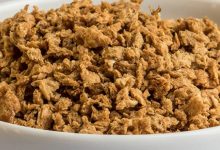Learn more about the benefits and properties of lettuce
Lettuce is one of the most widely consumed vegetables in the world, which has many health benefits. Having fitness and fighting cancer and strengthening the eyes, etc., are among the countless benefits of lettuce’s daily consumption.
Lettuce contains many antioxidants and vitamins, which is why it is one of the most popular vegetables. This vegetable is often used in salads and various foods such as sandwiches, etc. Lettuce is easily cultivated and needs a low temperature to grow. Lettuce is also a rich source of vitamins K and A.
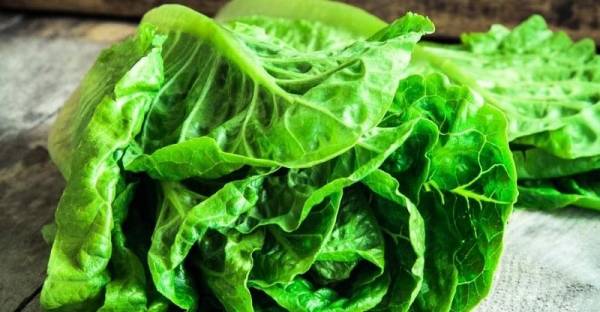
Lettuce dates back to ancient Egypt. Evidence suggests that this plant existed as early as 2680 BC and is specifically referred to as a medicinal plant. The plant traveled from Europe to the United States with Christopher Columbus in the late 15th century.
Lettuce nutritional value:
- A lettuce leaf (36 grams) has only five calories and 10 grams of sodium—no cholesterol or fat.
- 5 grams of fiber (2% daily requirement)
- 5 micrograms of vitamin K (78% daily amount)
- 2665 units of vitamin A (53% of daily value)
- 5 mg of vitamin C (11% daily amount)
- 7 micrograms of folate (3% daily amount)
- 3 mg of iron (2 pounds per day)
- 1 mg manganese (5% daily)
What are the properties and benefits of lettuce?
Lettuce contains antioxidants such as vitamin C and other nutrients such as vitamins A and K and potassium. This green leafy plant helps fight inflammation and related diseases such as diabetes and cancer.
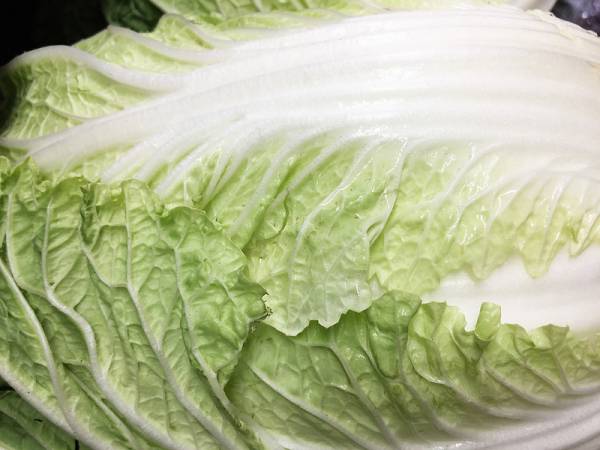
Lettuce to fight inflammation:
Some proteins in lettuce, such as lipoxygenase, help control inflammation. A study has shown that lettuce is used in traditional medicine to reduce inflammation and bone pain.
Vegetables such as lettuce, which are rich in vitamin K, significantly reduce inflammation.
Other vegetables that contain vitamin K include cabbage, broccoli, and spinach.
Lettuce for weight loss:
Lettuce can be the main ingredient in weight loss because lettuce has only 5 calories. Also, lettuce helps to obtain micronutrients that are difficult to find in low-calorie diets. It also contains 95% water and 1 gram of fiber. Fiber makes you feel full and suppresses your appetite.
Lettuce has very little fat, so it is perfect for weight loss.
Lettuce to improve brain health:
Alzheimer’s and depression are some of the diseases that can be caused by poor brain health. There have been many studies on lettuce’s properties, which show that consumption of lettuce juice helps to increase the relationship of nerve fibers in the brain. This dramatically reduces the risk of Alzheimer’s disease. Also, lettuce contains enough nitrate, which reduces the risk of diseases caused by aging. Omega-3 is also an essential compound for fighting depression and reducing stress in daily life.
Lettuce to improve heart health:
Lettuce is a rich source of B vitamins. This vitamin plays an essential role in cardiovascular health. Adequate intake of B vitamins can significantly reduce the risk of blood clots. Reducing blood clots in the arteries promotes better heart health.
Lettuce in your daily diet keeps your heart healthy. It also contains potassium, which is useful for lowering blood pressure. Potassium is a compound used to balance blood pressure in people with high blood pressure.
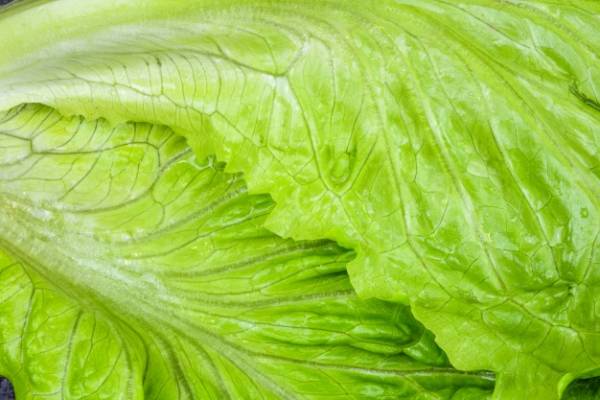
Lettuce to help fight cancer:
Some research has shown that lettuce prevents various cancers, such as cancers of the mouth, esophagus, and throat.
Lettuce to reduce the risk of diabetes:
Studies have shown that daily consumption of lettuce can reduce the risk of diabetes in people. Lettuce is also recommended for people with diabetes.
One of the properties of lettuce is controlling sugar and preventing it from rising. Lettuce juice has 5 calories and 2 grams of carbohydrates. You can use this plant to lower blood sugar without worrying about weight gain and obesity.
Lettuce also contains anti-cancer carotenoids, which lower blood sugar levels and could be a potential diabetes treatment.
Improve eye health with lettuce:
Lettuce contains lutein, an excellent antioxidant that promotes eye health. One study also found that women who had lettuce in their diet were 23 percent less likely to develop cataracts.
Eat lettuce to improve digestion and digestive health:
The fiber in lettuce facilitates digestion and treats other digestive ailments such as constipation and bloating. It can also reduce stomach pain and can improve intestinal health.
Lettuce to help treat insomnia:
Lettuce contains a substance that calms the nervous system. You can eat salad safely before going to bed, which is very useful in your insomnia.
Lettuce also contains another substance called lactose, which promotes sleep and relaxation. This plant was used even in the Middle Ages to cure insomnia.
Lettuce to improve bone health:
Vitamins A, K, and C are essential in collagen production (the first stage in bone formation), and lettuce is rich in all three. Vitamin K helps build cartilage. Vitamin A also helps build new bone cells, and its deficiency leads to osteoporosis and increases the risk of fractures. Vitamin C also prevents bone aging.
Vitamin K deficiency can also reduce bone mass and increase the risk of fractures.
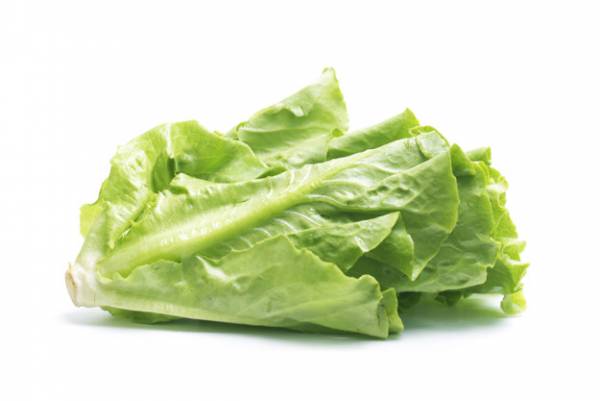
Lettuce to improve the immune system:
The vitamins A and C in lettuce are essential for the immune system. Lettuce also has antimicrobial properties.
Lettuce is good for pregnancy:
Many of the benefits of lettuce for pregnancy are due to its folate content. This nutrient reduces the risk of congenital disabilities, and vitamin K reduces bleeding, which is another benefit of childbirth. The fiber in lettuce can prevent constipation, which is a severe problem for pregnant women.
Improve muscle strength and metabolism with lettuce:
Eating lettuce means getting a lot of potassium into the body. Potassium is a compound that controls the strength of human muscles. Increasing potassium levels means increasing muscle strength. On the other hand, according to research, lettuce’s properties are that it speeds up metabolism and reduces stored fat in the body.
Lettuce to improve skin and hair health:
Vitamin A in lettuce regenerates the skin and increases blood circulation. We often say about wet skin and hair that vitamin C is protective to prevent the sun’s harmful rays from hitting the skin. Potassium increases blood circulation in the skin’s arteries. Adequate blood supply eliminates the symptoms of aging.
Lettuce masks have a lot of fiber that helps lighten the skin. You can easily wash your face daily with lettuce juice and enjoy its radiance.
Vitamin K in lettuce has many benefits for strengthening hair. This vitamin is one of the factors that strengthen the hair shaft and roots and prevents premature hair loss.
For maximum lettuce properties for hair, you should wash your hair with lettuce juice. Do this before shampooing. Lettuce has enough omega-3, which plays a vital role in skin and hair health.
Lettuce to fight anemia:
Lettuce contains moderate amounts of folate and essential nutrients to fight anemia. Lettuce is also useful in treating vitamin B12 deficiency.
Lettuce for hydration:
Lettuce contains 95% water. So keeping your body hydrated is a useful option.
Lettuce to protect against some diseases:
Lettuce contains antioxidants that neutralize free radicals in the body and prevent tissue damage.
Lettuce to help control anxiety:
Lettuce has anti-anxiety properties that help control anxiety. Lettuce plays an essential role in the process of nervous health and helps you cope with mental problems such as depression.

Lettuce to help get rid of toxins from the body:
The minerals in lettuce eliminate toxins from the body.
Lettuce can be consumed in different ways, used raw or fresh in burgers and salads. Lettuce can be used with peas, green beans, and seafood such as shrimp.
Side effects and allergies to lettuce:
Crops are sometimes sprayed with pesticides, so it is recommended to wash them before proper use.
Lettuce may cause allergic reactions in some people, so it is best to check for allergies before eating.
How to choose the right lettuce:
Make sure the leaves are healthy and green. Avoid buying lettuce that has sick, spotted, brown, or perforated leaves.
How to properly store lettuce:
Moisture is one of the causes of premature lettuce wilting in the refrigerator. Therefore, it is better to make sure that the lettuce leaves are dehydrated before packing and storing them in the refrigerator. To do this, without having to keep lettuce outside the refrigerator for a long time, you can keep it for several hours without closing it in plastic bags.
The best way is to wrap the lettuce in a dry towel after washing. Then put it in a plastic bag. In this way, lettuce’s freshness and crispness are preserved for a more extended period.
also read :
Learn more about the benefits and properties of Turkish coffee
40 properties of sesame oil for health and beauty
Do you know about the 40 healing properties of Mint vegetable?

